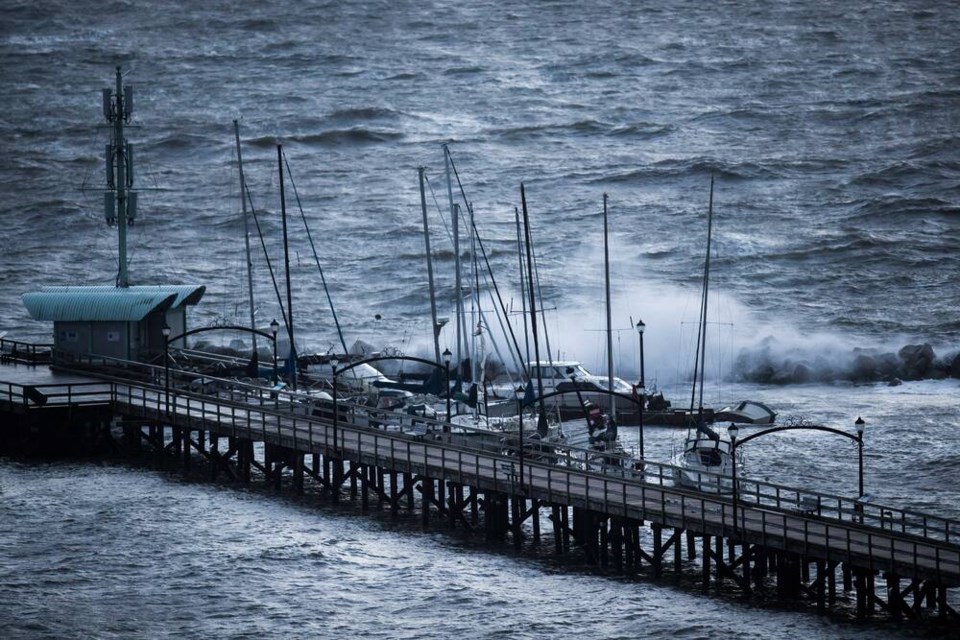A summer of severe drought and a forecast for a wet and windy fall and winter could result is more power outages in the coming months, says a report from B.C. Hydro.
B.C. Hydro meteorologists said record-breaking heat has left dead and weakened trees that could be a risk to electrical infrastructure as they topple on wires and poles. And La Niña conditions will bring colder, wetter and windier weather to the west coast creating a “perfect storm” for outages.
Victoria recorded its third-highest dry spell this summer, going 53 consecutive days from June 15 to Aug. 16 without any measurable precipitation at Gonzales Station in Oak Bay. Records were also set at Victoria International Airport.
In late June, the region also recorded its highest single-day temperature of 39.8 degrees.
Many other regions on the Island also set records for heat and dry spells, leaving weakened tree roots, wood and soil and leaving them more susceptible to failure.
B.C. Hydro said this year’s conditions going into the fall are similar to 2015 and 2018, when the utility was hit by its two most damaging storms.
A storm following the 2015 summer drought caused more than 710,000 outages and lasted multiple days.
In December 2018, a storm left more than 750,000 customers without power from Parksville to Victoria on Vancouver Island, the Gulf Islands, and West Vancouver to Mission on the mainland. On the Gulf Islands, customers waited up to 11 days to see power restored.
It’s considered the most destructive storm on the south coast in B.C. Hydro’s history.
The utility has one of the highest densities of trees per kilometre of power line in North America.
B.C. Hydro said it has stepped up its program to manage vegetation near lines in an effort to reduce the risk of outages over the coming months.
But the utility said customers should have flashlights, batteries, a first aid kit, water and non-perishable food on hand in case the lights go out.



